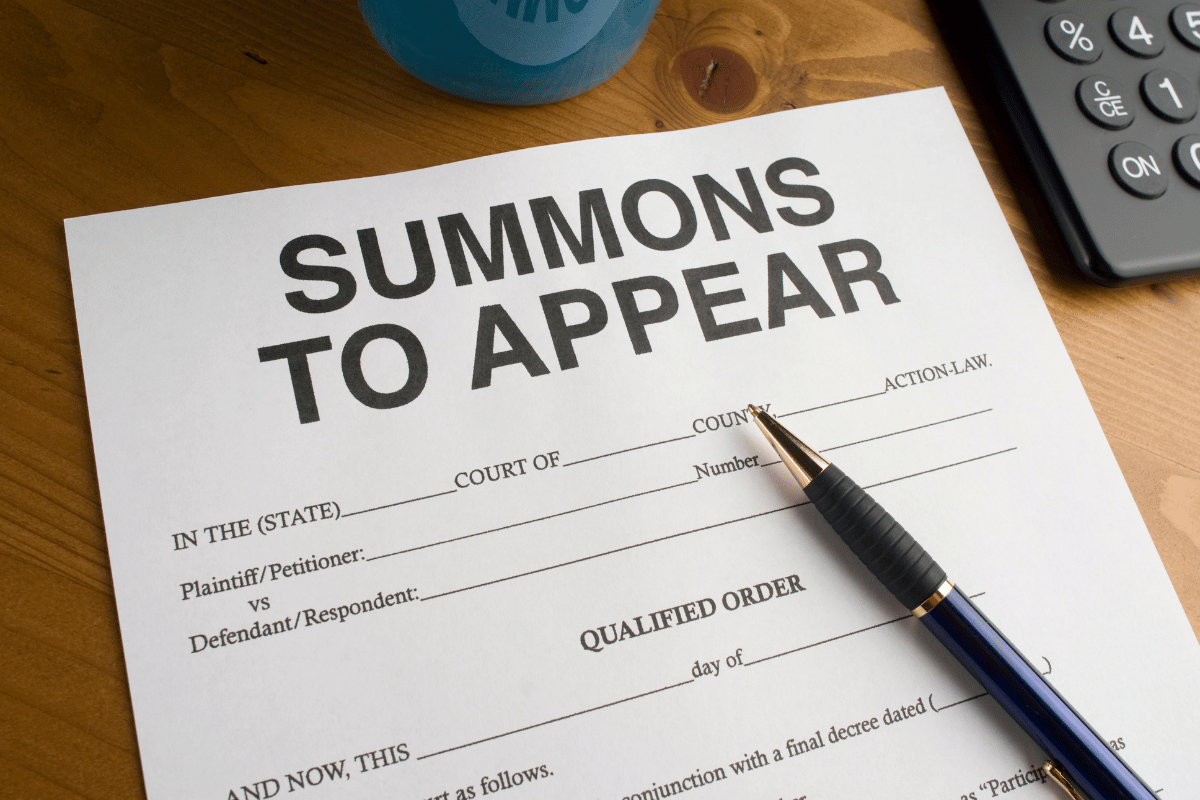This question came from one of our users:
What would happen if I never received a summons?
Sometimes the process server can fail to serve court-ordered documents. In this case, the Court can not pass a judgment against you and has no personal jurisdiction over you. But receiving a court notice is the start of a legal action against you. This can be a dire situation for most people, especially if you are unfamiliar with the legal system.
A court notice is an official communication to the opposite party to let them know legal action has been taken against them. This notice will usually be either a summons, complaint, subpoena, or notice of hearing. If you ignore the notice and do not appear in Court, you will face default judgment or may face some other legal consequences. Essentially, you should prove you were never served if this is your defense.
You can prove this via surveillance, proof of a wrong address, recent move, mail lost or delayed by the USPS, notice served to the wrong person, living somewhere with restricted access, or being served by publication.
The legal repercussions can be debilitating. The first can be a default judgment. If you never receive your court notice, you will not appear in Court, and the judge will proceed with the case without you, which may result in a default judgment. In favor of the plaintiff, meaning the other party will automatically win the case. If the cause is monetary damages, then wage garnishment or property liens can be used in a suit. In certain circumstances, arrest warrants can be deemed appropriate.
It is important to remember that it is a legal requirement to appear in Court. If you ignore the summons or fail to meet the criteria above, the above consequences may occur. You are also legally obliged to comply with a subpoena.
If you do not understand your legal rights, it is pertinent to consult an attorney within your jurisdiction. Ignorance alone does not excuse you from failing to appear in Court. Again, you have to prove you never received your notice.

Failing to show in the Criminal Court
A failure to show in criminal Court could allow the judge to issue a warrant for your arrest if you fail to appear. This warrant means the police officer can place you under arrest anytime, anywhere. If you have a warrant for your arrest, you should turn yourself in as soon as possible and try to explain yourself to the judge. If you have a legitimate reason for the missed hearing, such as non-service of court documents, then you may be pardoned. With the lack of sufficient excuse and proof, the missed court date was unintentional, which can warrant more serious consequences.
Failure to show up in Civil Court
In civil Court, not showing up to your court date means that you can lose the case by default. The Court can enter a judgment against you in your absence if the other party can prove you were served correctly. If you were improperly served, however, the case can be continued or rescheduled to another court date. Then the other party would again try to serve your new court date.
It is therefore essential to be aware of whether someone is suing so that you can take the proper actions. Keeping an eye on your mail, emails, summons, legal documents, and public notices will all help you receive the Court-ordered notice. Also, if you believe you have an open case, you can approach the clerk's office, go online, or consult a lawyer about receiving your notice.
Designed for general information use only. The content above does not constitute legal advice or the formation of an attorney/client relationship.
.avif)











.avif)
